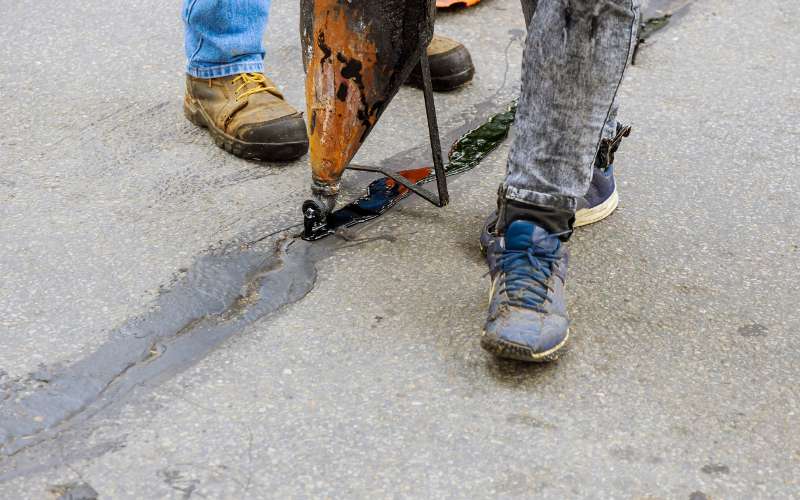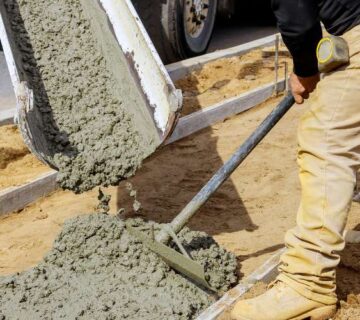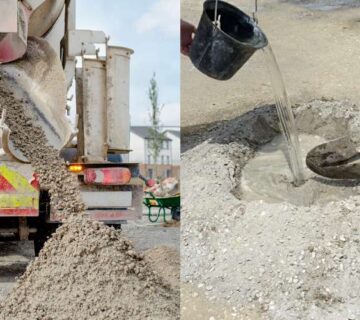Concrete is a durable and versatile material, widely used in construction due to its strength and longevity. However, over time, it can suffer from wear and tear, leading to damage that requires repair. Maintaining concrete structures is crucial to ensure safety, functionality, and aesthetic appeal. This article delves into the key aspects of concrete repair in Virginia Beach, VA, providing a comprehensive guide for homeowners and property managers.
Understanding Concrete Damage
Common Causes of Concrete Damage
Concrete damage can result from various factors, including:
- Weather Conditions: Freezing and thawing cycles, heavy rains, and extreme temperatures can cause concrete to expand and contract, leading to cracks and surface damage.
- Chemical Exposure: Deicing salts, acids, and other chemicals can deteriorate concrete over time.
- Physical Impact: Heavy loads, accidental impacts, and high traffic can contribute to concrete wear and tear.
Types of Concrete Damage
Understanding the types of damage is essential for choosing the appropriate repair method:
- Surface Cracks: Small cracks that appear on the surface due to shrinkage or minor impacts.
- Spalling: The chipping or flaking of the concrete surface, often caused by freeze-thaw cycles or corrosion of embedded steel.
- Structural Cracks: Deeper cracks that affect the integrity of the concrete structure, often requiring more intensive repair methods.
Signs That Your Concrete Needs Repair
Knowing when your concrete needs repair can prevent minor issues from becoming major problems:
Visible Cracks and Chips
Small cracks and chips can quickly escalate if not addressed. Regular inspections can help identify these issues early.
Uneven Surfaces
Uneven or sunken concrete surfaces indicate underlying problems, such as soil erosion or poor initial installation.
Water Pooling
Water pooling on concrete surfaces can lead to further damage, indicating drainage issues that need immediate attention.
Concrete Repair Techniques
Surface Repairs
Surface repairs involve fixing minor damage, such as small cracks and spalling, using patching materials.
Structural Repairs
Structural repairs address deeper and more serious damage, often involving reinforcement and rebuilding sections of concrete.
Injection Grouting
Injection grouting involves injecting epoxy or polyurethane materials into cracks to restore structural integrity.
Resurfacing
Resurfacing involves applying a new layer of concrete over the existing surface, providing a fresh, smooth finish and addressing superficial damage.
Materials Used in Concrete Repair
Epoxy Resins
Epoxy resins are commonly used for their strong bonding properties and durability.
Polymer-Modified Mortars
Polymer-modified mortars offer improved adhesion, flexibility, and resistance to chemicals and weathering.
Concrete Sealants
Sealants provide a protective barrier against moisture and chemicals, extending the life of concrete repairs.
Steps to Effective Concrete Repair
Assessment and Diagnosis
A thorough assessment helps identify the extent of the damage and the appropriate repair methods.
Preparation of the Area
Proper preparation, including cleaning and removing damaged concrete, ensures the success of the repair.
Application of Repair Materials
Applying the right materials in the correct manner is crucial for a durable repair.
Finishing and Curing
Proper finishing and curing techniques ensure the repaired area blends seamlessly and retains its strength.
Hiring a Professional vs. DIY
Benefits of Professional Repair Services
Professionals bring expertise, experience, and specialized equipment, ensuring high-quality repairs.
When to Consider DIY Repairs
Minor surface repairs can often be handled by homeowners, saving costs on professional services.
Cost of Concrete Repair
Factors Affecting Repair Costs
Repair costs vary based on the extent of damage, materials used, and labor required.
Average Cost Estimates in Virginia Beach
In Virginia Beach, concrete repair costs can range from $300 to $3,000, depending on the project.
Preventative Measures for Concrete Longevity
Regular Inspections
Routine inspections help identify and address issues before they worsen.
Seal Coating
Applying a seal coat protects the concrete from moisture, chemicals, and weathering.
Proper Drainage
Ensuring proper drainage prevents water accumulation and related damage.
Choosing the Right Contractor in Virginia Beach
Key Qualities to Look For
Look for contractors with experience, good reviews, and proper licensing and insurance.
Questions to Ask Potential Contractors
Inquire about their experience, repair methods, and warranties offered.
Regulations and Permits for Concrete Repair
Local Building Codes
Compliance with local building codes is essential for safety and legality.
Necessary Permits
Obtain the necessary permits before starting any concrete repair project.
Eco-Friendly Concrete Repair Options
Sustainable Materials
Use eco-friendly materials that reduce environmental impact.
Green Techniques
Adopt green repair techniques that promote sustainability.
Case Studies of Successful Concrete Repairs in Virginia Beach
Residential Projects
Examples of successful residential concrete repair projects in Virginia Beach.
Commercial Projects
Case studies of commercial concrete repairs, highlighting challenges and solutions.
Common Mistakes to Avoid in Concrete Repair
Skipping the Assessment
Neglecting a thorough assessment can lead to inadequate repairs.
Using Incorrect Materials
Using the wrong materials can compromise the repair’s effectiveness.
Ignoring Maintenance Post-Repair
Ongoing maintenance is crucial to preserving the repaired concrete.
Conclusion
Concrete repair is an essential aspect of maintaining the safety, functionality, and appearance of structures in Virginia Beach, VA. By understanding the types of damage, signs of wear, repair techniques, and preventative measures, property owners can ensure their concrete remains in top condition for years to come. Whether choosing to hire a professional or tackle minor repairs themselves, staying informed is the key to successful concrete maintenance.
FAQs
- How long does concrete repair take?
- The duration of concrete repair depends on the extent of the damage and the repair method used. Minor repairs may take a few hours, while major structural repairs could take several days.
- Can all types of concrete damage be repaired?
- Most types of concrete damage can be repaired, but the method and materials used will vary based on the severity and nature of the damage.
- How often should concrete be inspected?
- It’s recommended to inspect concrete structures annually to catch any early signs of damage and address them promptly.
- Is concrete repair covered by insurance?
- Coverage for concrete repair depends on your insurance policy and the cause of the damage. It’s best to consult with your insurance provider for specific details.
- What is the best time of year for concrete repair?
- Spring and fall are typically the best times for concrete repair, as moderate temperatures and dry conditions help the repair materials cure properly.





No comment